SUMMARY
This is AI generated summarization, which may have errors. For context, always refer to the full article.

Only a month has passed by and the Philippine government has already returned to the policy of arresting quarantine violators, particularly those who do not wear their face masks properly, with the Department of Justice (DOJ) crafting rules so jails do not overcrowd.
All it took was a word from President Rodrigo Duterte, who said in a speech Wednesday, May 5, that he was ordering policemen to arrest, detain, and investigate those improperly wearing their face masks.
Justice Secretary Menardo Guevarra, who said last April 5 that he had recommended a policy of community service instead of arrests, said on Thursday, May 6, that “the President’s directive takes effect immediately even without the guidelines.”
Guevarra said that his recommendation a month ago was for local government units (LGUs) to “consider imposing community service as an alternative to stiff fines or imprisonment as a penalty for violation of such ordinances.”
“The Metro Manila Development Authority (MMDA) has expressed its concurrence with the proposal. On the other hand, the President’s latest directive to law enforcers is to effect the arrest of persons caught in the act of violating laws or ordinances relating to basic health protocols,” said Guevarra.
Guevarra said that they are “fully aware” that the directive may result in congested jails, “so the President has directed the Department of Justice (DOJ) and the Department of the Interior and Local Government (DILG) to come up with guidelines for the proper enforcement of his latest directive.”
Guevarra said the guidelines will contain “nothing special” about the legal technicalities of when and how arrests can be made, but “just determining the manner, time, or place of booking, detention, and investigation para maiwasan ang (to prevent) overcrowding and avoid the very evil sought to be prevented.”
Based on ordinance
In 2020, policemen arrested hundreds daily for violating quarantine after Guevarra himself signaled that arrests could be made under Republic Act No. 11332 or the Mandatory Reporting of Notifiable Diseases Act, and Article 151 of the Revised Penal Code on disobedience to authority. Releases were also severely delayed because courts and prosecutorial dockets could not keep up.
Asked if they had already identified and fixed the bottleneck that kept detainees in jail longer than they have to – since quarantine breach is a minor infraction – Guevarra said, “We’ll deal with these anticipated problems in the guidelines.”
In April after Guevarra announced the policy shift to community service, the Philippine National Police (PNP) followed suit and said they would also no longer arrest.
But with Duterte’s latest directive, PNP chief General Debold Sinas said on Thursday “as a procedure, all persons cited for such violation of local ordinances and other laws shall be subject to investigation and booking purposes.”
Reporters clarified with Guevarra if arrests could still be made under RA 11332, considering he had already said it was not a “very exact” law and many cases under such law had already been junked by prosecutors and courts.
Guevarra said arrests would generally be made under local ordinances with penal sanctions.
“All LGUs, as far as I know, have existing ordinances pertaining to health protocols and imposing penalties for violations thereof. When there is no law or ordinance that defines an offense, no arrest can be made,” said Guevarra.
For example, in Pasay, there is a local ordinance that punishes not wearing face mask and face shields with fines, depending if you’re a first time or a second time offender. For the third offense, it’s P5,000 fine plus jail time upon the court’s discretion.
Citing data from local police, Pasay Mayor Emi Calixto Rubiano said on Thursday that 2,467 individuals had been arrested in the past week for violating protocols. Of those, 130 were charged.
Sound policy?
The Duterte government’s policing blueprint in responding to the pandemic has prompted calls to adopt common-sense governance and avoid treating violations as a legal issue precisely because of congested court and prosecutorial dockets and overcrowding jails.
Edre Olalia, president of the National Union of Peoples’ Lawyers (NUPL), said the latest directive “is another authoritarian edict akin to the law of rulers and undermines the rule of law.”
“And the legal justification is not only inapplicable but erroneous because there is no crime or offense covered by any law or ordinance for a valid instance of warrantless arrest to even remotely operate,” said Olalia.
Lawyers have discussed since the start of the pandemic that the current framework of laws do not specifically criminalize such protocol breaches.
“Shouldn’t simply providing face mask for free to those who cannot afford them and launching massive popular information drives do the trick rather than overpacking our already cramped and congested jails?” said Olalia.
Duterte, a former prosecutor, also said in his speech that law enforcement has nine hours to detain and investigate. The Revised Penal Code provides for 12, 18, or 36 hours, depending on the gravity of the offense.
“The cited allowable period of detention without charges is also wrong. That is what we get when we have knee-jerk draconian ideas rather than commonsensical solutions,” said Olalia.
Earlier this year, there had been reports of abuses when officials apprehended quarantine violators. In April, 28-year-old Darren Peñaredondo died after policemen forced him to do 300 rounds of a pumping exercise akin to squats. He was apprehended for breaking curfew in General Trias, Cavite, because he had to buy water for his family.
Also in April, 26-year-old Ernanie “Nanie” Lumban Jimenez died after he was reportedly beaten to death by two barangay tanods in Calamba City, Laguna, also for breaking curfew.
– Rappler.com
Add a comment
How does this make you feel?
![[PODCAST] Law of Duterte Land: Lugaw, RA 11332, and common sense policy](https://www.rappler.com/tachyon/2021/04/Law-of-DuterteLand.jpg?fit=449%2C449)
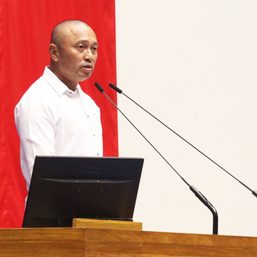
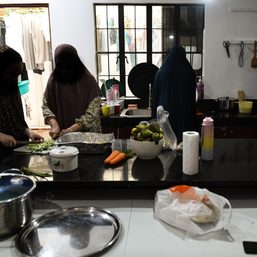
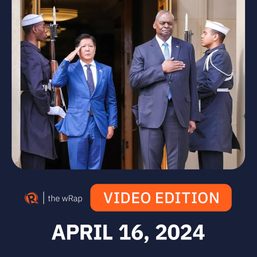
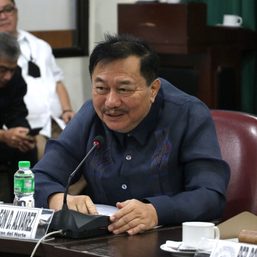
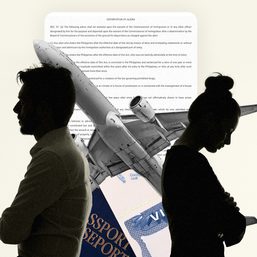



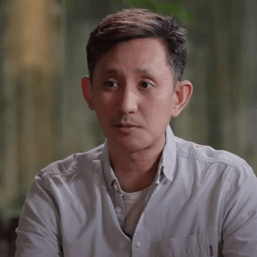
![[WATCH] Dahas Project, the team that continues to count drug war victims](https://www.rappler.com/tachyon/2024/03/dahas-project-2.jpg?resize=257%2C257&crop=404px%2C0px%2C1080px%2C1080px)
There are no comments yet. Add your comment to start the conversation.